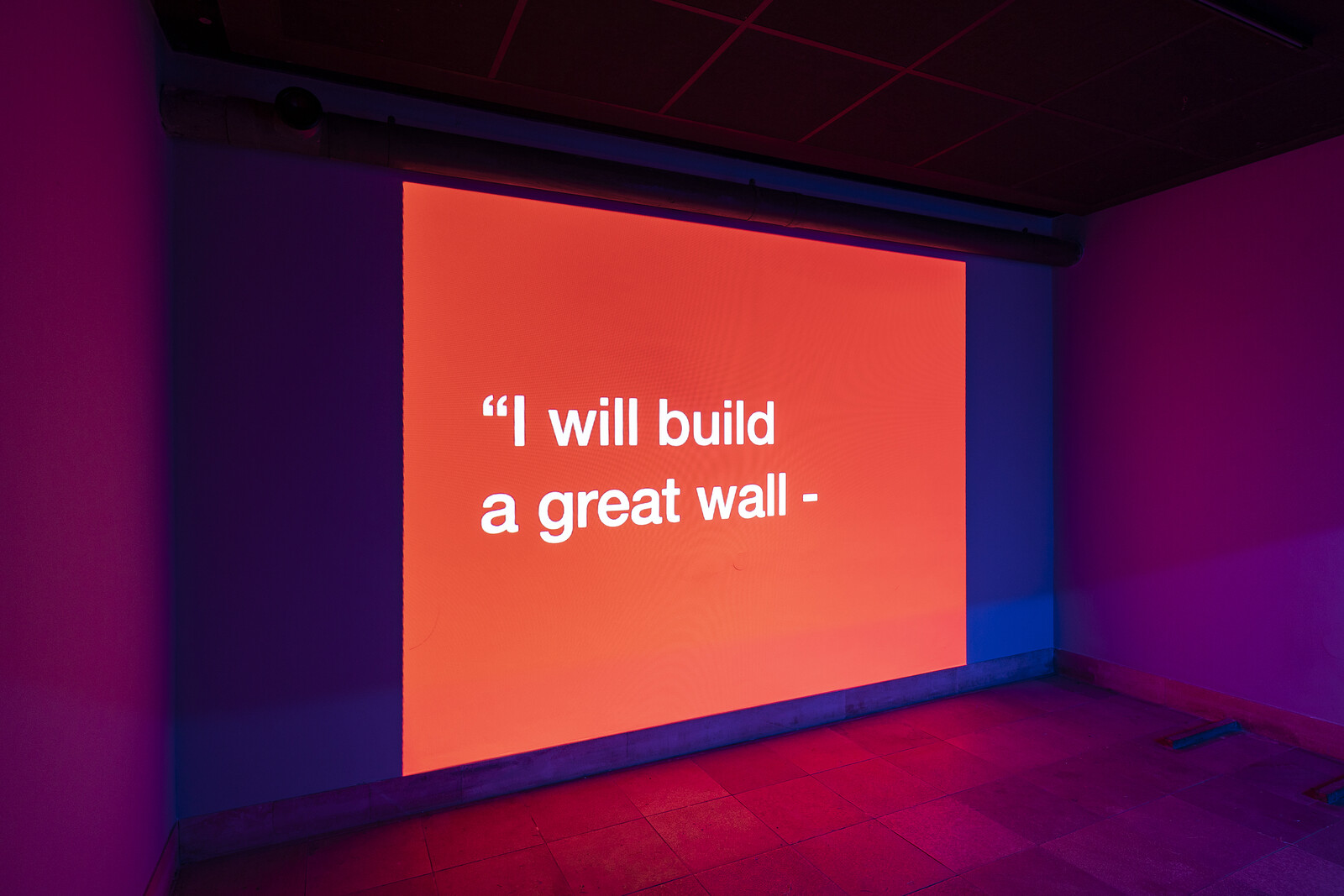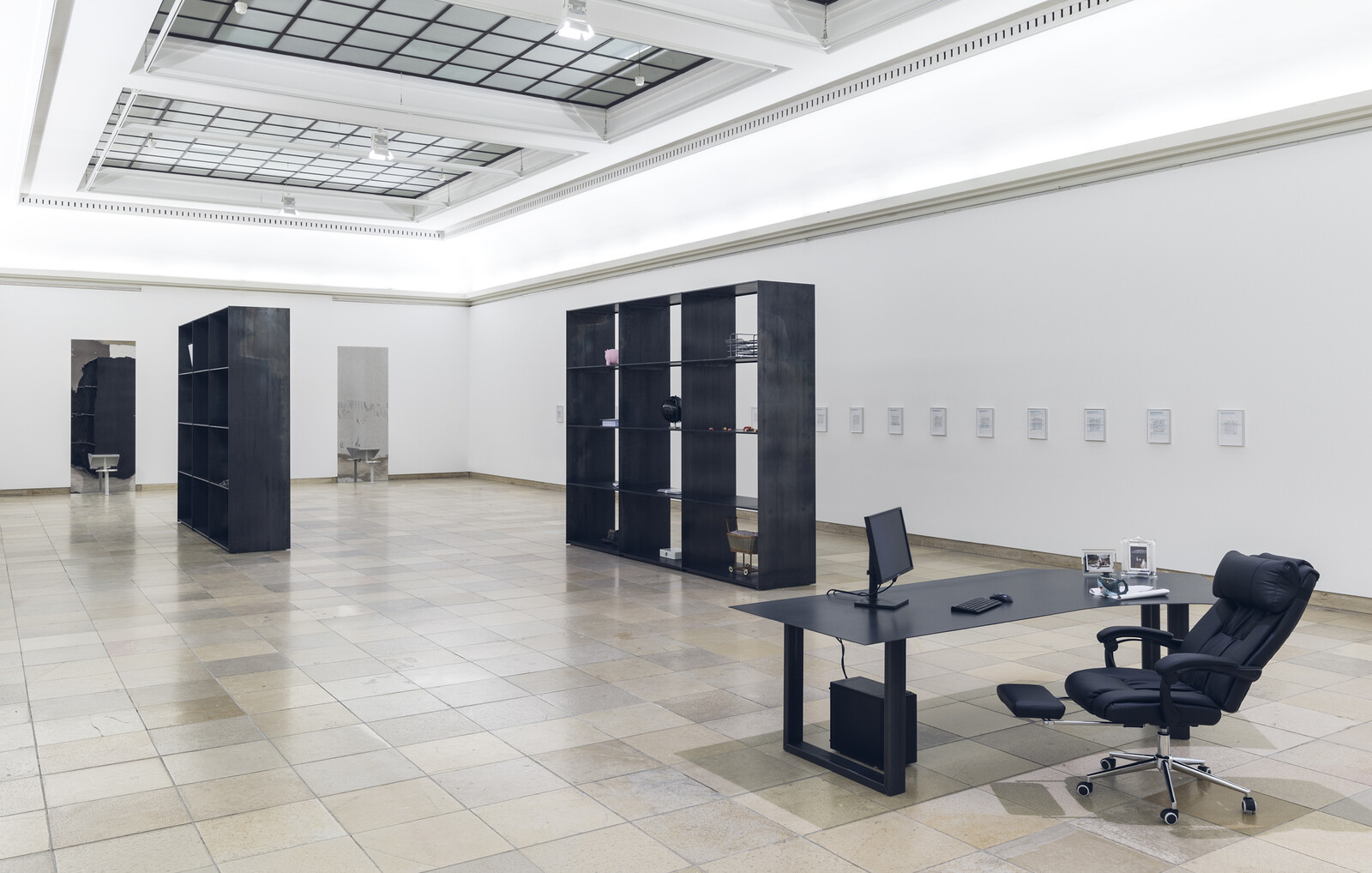Categories
Subjects
Authors
Artists
Venues
Locations
Calendar
Filter
Done
July 26, 2022 – Review
Tony Cokes’s “Fragments, or just Moments”
Harry Burke

Walking into “Fragments, or just Moments” at Haus der Kunst is like walking into a club. Blue lighting animates the subterranean LSK Gallery, while atmospheric techno—the audio of Tony Cokes’s Some Munich Moments 1937–1972 (2022)—thuds in the corridor. The effect is uncanny, not least as the bunker was formerly an air raid shelter created by the National Socialist party—as three shower cubicles by the entrance, among other eerie details, testify.
In this retrospective, which spans this venue, the Kunstverein München, and two public sites, Cokes stages a haunting conversation with Munich’s past. 1937 is the year that the Haus der Kunst, designed by Hitler’s “master builder” Paul Troost, opened its doors. In 1972, the city’s Olympic Games, which West Germany hoped would repair its international standing, were overshadowed by the murder of eleven Israeli athletes by affiliates of the Black September Organization, a Palestinian militant group. In the postwar years, Germany undertook a determined program of de-Nazification, and today is reckoning with its colonialism.
In a change of tune from Cokes’s celebrated text animations of the last two decades, which mostly shun representational imagery, Some Munich Moments (different edits of which appear at each venue) features scenes of a comprehensively …
April 14, 2020 – Review
Sung Tieu’s “Zugzwang”
Chloe Stead

“Zugzwang” describes the situation in turn-based games, such as chess, when the compulsion to move puts a player at a disadvantage. In Sung Tieu’s solo exhibition at Haus der Kunst, this becomes a metaphor to describe the asylum process, which compels applicants to provide authorities with information that may later be used against them. Tieu is no stranger to this system. Born in Hai Duong, Vietnam, in 1987, she immigrated to Germany with her mother in the early 1990s, and is now based in London and Berlin.
This experience is indirectly referenced in a set of 31 replicas of official forms (Alekhine’s Defence, all works 2020) that stretch across two of the exhibition’s four walls. Relating to asylum, naturalization, and residency, each of these uniformly framed documents has been edited by the artist to remove any mention of the country where they were issued. Posing basic biographical questions alongside more subjective requests—“[Provide] factual information about the applicant’s intelligence”—these forms aim to assess the “use value” of each claimant, which is in turn balanced against the possible risks, such as ill health or possible criminal activity, which they pose. On each sheet, Tieu has drawn a move from a historic chess match …